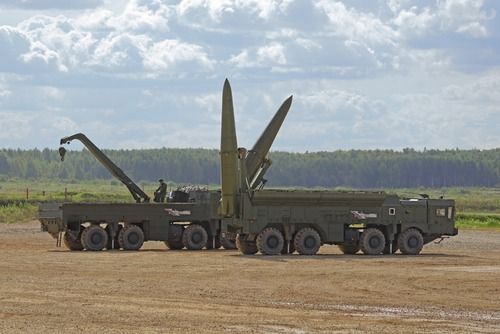A terribly interesting year in nuclear weapons
By John Mecklin | December 25, 2016

The year now concluding was full of interesting and unpredictable news regarding nuclear weapons and their accoutrements; the year was, therefore, also continuously and enormously threatening to humanity. Below are 10 of the Bulletin‘s best articles from a frightening year, during which, in countries around the world—from North Korea to Pakistan to India to Russia and on to the United States—people who ought to know better suggested that more nuclear weapons should be built, and some might be used.
On tickling the dragon’s tail by Victor Gilinsky
The moral restraints that prevent Armageddon are flimsier than one might think, because humans have a self-destructive defect. They like to tickle the dragon’s tail.
Putin: The one-man show the West doesn’t understand by Fiona Hill
The director of the Center for the United States and Europe at The Brookings Institution explains what the world is missing when it deals with the Russian president. [Subscription content.]
The indelicate balance of nuclear modernization by Adam Mount
Closing small and hypothetical gaps in the US nuclear arsenal isn’t worth the expense and won’t eliminate risk.
The experts, and the Trump administration by John Mecklin
Top experts on nuclear weapons, climate change, and other existential threats to humanity comment on how they think the expert community can best respond to Donald Trump’s election.
Trump’s plans for European missile defense a mystery by Rachel Oswald
Donald Trump’s presidential election victory raises many international security questions, including critically the future of a US ballistic missile shield in Europe, an effort long opposed by someone with whom Trump wishes to build a new relationship—Russian President Vladimir Putin.
The UN makes history on a nuclear weapons ban. Does the US care by Joe Cirincione
Why have major US media outlets ignored a UN vote to negotiate a treaty that would ban nuclear weapons? The president of the Ploughshares Fund provides some answers.
Preparing the country for nuclear terrorism by Jerome M. Hauer
The presidential candidates must do more than accept the possibility of a terrorist attack with an improvised nuclear device. They need to plan an effective response that reduces the mass morbidity and mortality such an attack inevitably will cause.
Interview: Former US ambassador to Russia Michael McFaul by John Mecklin
The former ambassador discusses US–Russian relations and how they might be improved, given Russian President Vladimir Putin’s suspicious views of US intentions. [Subscription content.]
Careful, we might nuke you: The consequences of rejecting a nuclear no-first-use pledge by James E. Doyle
There are reasonable arguments on both sides of the no-first-use debate. Unfortunately, there may be negative consequences for raising the issue publicly and then rejecting it.
The double-edged sword: US nuclear command and control modernization by Andrew Futter
Even in this digital age there are many reasons to be careful about what we wish for when it comes to modernizing the nuclear command and control system. More technological capability will not necessarily create a more secure world.
Together, we make the world safer.
The Bulletin elevates expert voices above the noise. But as an independent nonprofit organization, our operations depend on the support of readers like you. Help us continue to deliver quality journalism that holds leaders accountable. Your support of our work at any level is important. In return, we promise our coverage will be understandable, influential, vigilant, solution-oriented, and fair-minded. Together we can make a difference.
Topics: Analysis, Nuclear Weapons














